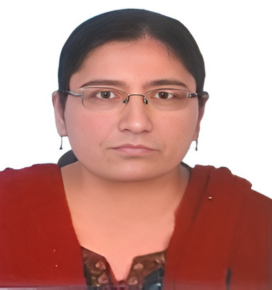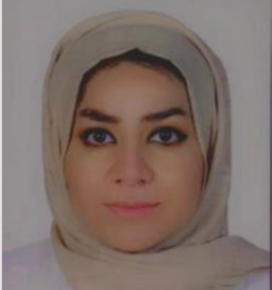Editorial Board
The Editorial Board of the journal is responsible for maintaining the quality and integrity of the journal's content. The board members are experts in their respective fields and play a crucial role in the peer review process, ensuring that all articles published meet the highest academic standards.
The Editorial Board is committed to upholding the principles of academic excellence, transparency, and ethical publishing practices. They work closely with authors, reviewers, and the editorial team to facilitate a smooth publication process.
Editor-in-Chief

Amgad M Rabie PhD [View Profile]
Editor-in-ChiefDepartment: Department of Drug Discovery and Clinical Research
Affiliation: Dikernis General Hospital, Dikernis
Designation: Senior Pharmacist
Email: amgad_rabie@hms.harvard.eduCountry: Egypt
Dr. Amgad Mohammed Rabie Hamed Fouda has completed his MSc and Postgraduate studies in Pharmaceutical and Biomedical Sciences at the age of 30 years from the Faculty of Pharmacy, Mansoura University, Egypt. He is one of the most famous and reputed Egyptian and Arab pharmacists, researchers and scientists. His new researches focused on the synthesis, discovery, and development of new drugs and medicines for the most resistant and untreated human diseases. He is the head of pharmacists at the Dikernis General Hospital (Mansoura, Egypt), a premier governmental hospital in Egypt. He has published more than 25 papers in very reputed journals and serving as an Editorial Board Member of great repute.

Pedro Fonte PhD [View Profile]
Editor-in-Chief [Instituional Profile Link]Department: Faculty of Sciences and Technology
Affiliation: University of Algarve, Faro
Designation: Assistant Professor
Email: prfonte@ualg.ptCountry: Portugal
Pedro Fonte is an Assistant Professor at the Faculty of Sciences and Technology, University of Algarve, Portugal. He is an Integrated Member of the Center for Marine Sciences (CCMAR) at the University of Algarve and a Collaborative Researcher at the Institute for Bioengineering and Biosciences (iBB) at Instituto Superior Técnico, University of Lisbon.
He has expertise on developing cutting-edge nanocarriers for drug delivery. His research is dedicated to pioneering targeted and controlled drug delivery systems that effectively cross biological barriers, enhancing treatment precision and efficacy. He is also a specialist in the lyophilization and solid-state characterization of pharmaceuticals and biopharmaceuticals, ensuring the stability and bioactivity of drugs. Moreover, his expertise extends to the structural characterization of therapeutic proteins, vital for advancing biopharmaceutical innovations. Currently, his groundbreaking work is primarily focused on revolutionary applications in cancer treatment and wound healing.
Pedro Fonte has successfully coordinated several funded scientific projects, establishing valuable collaborations with researchers and academics worldwide. His publication record includes over 50 papers in high-impact peer-reviewed journals, 10 book chapters, and 1 edited book. His contributions to the scientific community and society have garnered him many awards and distinctions, including recognition as one of the Top 2% Scientists by Stanford University.
Editorial Members

Duo Liu Ph.D
Editorial Member [View Profile]Affiliation: Harbin Medical University Cancer Hospital, Harbin
Department: Department of Pharmacy
Designation: Professor
Email: 601563@hrbmu.edu.cnCountry: China
Liu Duo, Professor, Chief Pharmacist; Doctoral Supervisor. PhD, Postdoctoral Fellow in Basic Medicine. Distinguished Young Scholar of Heilongjiang Province, Star-linked Faculty of Harbin Medical University, Outstanding Young Talent and Top Young Talent of the Affiliated Cancer Hospital of Harbin Medical University, Visiting Scholar in the United States. He has presided over more than ten projects including the National Natural Science Foundation, Heilongjiang Provincial Natural Science Foundation, China Postdoctoral Fund, Heilongjiang Postdoctoral Fund, and preferential support programs for returning overseas scholars. He has published 15 SCI papers as the first or corresponding author, with the highest impact factor of a single paper being 12.701. He has won the Second Prize of New Technology in Heilongjiang Province and the First Prize of New Medical Technology at Harbin Medical University, one each. He serves in multiple national academic positions and editorial boards of journals.

Chan Siok Yee PhD
Editorial Member [View Profile]Affiliation: Universiti Sains Malaysia, Pulau Pinang
Department: Department of Pharmaceutical Science
Designation: Associate Professor
Email: sychan@usm.myCountry: Malaysia
Associate Professor Dr Chan Siok Yee is a fully registered pharmacist and a member of academic staff and program chair of discipline pharmaceutical technology in the School of Pharmaceutical Science, Universiti Sains Malaysia. Being a young academic, Siok Yee has proved her ability in outperform her peers in research. She holds a number of research grants including an international grant, industrial as well as government grant for research. Dr Chan Siok Yee is visionary, she established her own research group which is named of Thought Formulation Lab. On top of that, Siok Yee has a great leadership quality which could be seen from her affiliation to several societies such as co-lead of focus area in Global Young Academy, Education specialist of Melaka Action Group for Parent in Education, member of the Malaysian Pharmacy Society, Editor in Chief for Malaysian Journal of Pharmacy, Chair of Science Leadership Working group in the Young Scientist Network and serves as the President for Malaysia Society of Pharmaceutical Technology.

Narsimha Mamidi PhD
Editorial Member [View Profile]Affiliation: University of Wisconsin, Madison
Department: Department of Pharmacy
Designation: Staff Scientist
Email: nmamidi@wisc.eduCountry: United States
Dr. Narsimha Mamidi is a Staff Scientist at the School of Pharmacy, University of Wisconsin-Madison, with extensive expertise in nanomedicine, drug delivery, biomaterials, and translational cancer research. He earned his Ph.D. in Chemical Sciences from IIT Guwahati, India, where he received the Eli Lilly Outstanding Thesis Award. His interdisciplinary research focuses on the development of peptide-conjugated lipid nanoparticles, engineered hydrogels, and nanocomposites for targeted drug and gene delivery, with applications in cancer immunotherapy, pulmonary diseases, and regenerative medicine. Dr. Mamidi has held academic positions in India, Mexico, and the USA, and has mentored numerous students across doctoral, master's, and undergraduate levels. He has authored over 45 peer-reviewed publications in high-impact journals such as Nature Biotechnology, Advanced Healthcare Materials, Nanoscale, and Nano Today, and has been recognized with several awards, including the 2022 Outstanding Reviewer Award from Polymers. His technical skill set spans synthetic organic chemistry, peptide synthesis, nanoparticle engineering, CRISPR-based EV analysis, and a range of analytical and imaging techniques. Passionate about bridging lab-scale innovations with clinical applications, he actively contributes to research, teaching, and academic outreach across global platforms.

Ziyaul Haque Shakeel Ahmad PhD
Editorial Member [View Profile]Affiliation: Anjuman-I-Islam Kalsekar Technical Campus, Mumbai
Department: Department of Pharmaceutical Chemistry
Designation: Assistant Professor
Email: ziyaul.haque@aiktc.ac.inCountry: India
I am Dr. Ziyaul Haque Shakeel Ahmad, an Assistant Professor in the Department of Pharmaceutical Chemistry at the School of Pharmacy, Anjuman-I-Islam Kalsekar Technical Campus. With over 10 years of teaching and research experience, I specialize in drug design, QSAR modeling, molecular docking, spectroscopy, and medicinal chemistry.
I hold an M. Pharmacy in Pharmaceutical Chemistry (Distinction, 2014) and a B. Pharmacy (2012), and I am currently pursuing my Ph.D. at Maulana Azad University, Jodhpur, focusing on anti-urolithiasis drug design using computational approaches.
My research has resulted in multiple publications in reputed international journals such as International Immunopharmacology, Journal of Alzheimer’s Disease, Arabian Journal of Chemistry, and European Journal of Pharmacology. I have delivered guest lectures, organized conferences, and received awards at national and international forums for my research presentations.
I am also a life member of APTI and SPER, and I actively contribute to student learning through my YouTube channel “Alchemia.EasyChem” and my educational website.
With a passion for teaching, research, and innovation, I aim to contribute significantly to the advancement of pharmaceutical sciences and inspire future professionals in this field.

Shazia Usmani PhD
Editorial Member [View Profile]Affiliation: Integral University, Lucknow
Department: Department of Pharmacy
Designation: Professor
Email: shazia@iul.ac.inCountry: India
Dr. Shazia Usmani is an accomplished academic and researcher with expertise in pharmaceutical sciences. She has extensive teaching and research experience, focusing on drug design, medicinal chemistry, and pharmacology. Dr. Usmani has contributed to numerous publications in peer-reviewed journals and actively participates in academic collaborations and scientific events. She is dedicated to advancing research and education in her field and brings strong leadership and editorial skills to her professional roles.

Fawzy A Saad Ph.D.
Editorial Member [View Profile]Affiliation: Saad Pharmaceuticals, Tallinn
Department: Department of Drug Discovery
Designation: Chief Executive Officer
Email: fa_saad@yahoo.co.ukCountry: Estonia
Dr. Fawzy A. Saad is currently the Chief Executive Officer of Saad Pharmaceuticals in Tallinn, Estonia, where he leads innovative biopharmaceutical research focused on gene therapy and precision medicine for rare genetic and age-related disorders. He is a renowned molecular geneticist and biotechnology expert with over 30 years of international experience in genetic research, gene therapy, and orthopaedic molecular biology. He holds a Ph.D. in Human Molecular Genetics from Padua University, Italy, and has conducted pioneering research across esteemed institutions including the University of Toronto, Wake Forest University, Harvard Medical School, and Albert Einstein College of Medicine. His extensive work spans dystrophinopathies, bone remodeling, tendon regeneration, and metabolic bone diseases, resulting in over 45 peer-reviewed publications and multiple patents. Dr. Saad has also served as a scientific advisor and editorial board member for leading journals, mentored numerous researchers, and led training in advanced molecular techniques.

Yasameen Hmeed Jasim AL-Daraji PhD
Editorial Member [View Profile]Affiliation: University of Samarra, Samarra
Department: Department of Applied Chemistry
Designation: Lecturer
Email: yasmin@uosamarra.edu.iqCountry: Iraq
Dr. Yasameen Hmeed Jasim Al-Daraji is a Lecturer in Biochemistry at the University of Samarra, Iraq, with over a decade of academic and research experience. She holds an M.Sc. in Biochemistry and is currently pursuing her Ph.D. in Clinical Chemistry at Erciyes University, Turkey, focusing on molecular markers in brain cancer. Her research spans clinical biochemistry, metabolic disorders, and the therapeutic effects of natural compounds. She has published several peer-reviewed studies on topics such as the impact of plant-derived flavonoids on diabetic and liver disease models, UVC radiation effects, and microbial nutrient media production. Her work appears in journals like the International Journal of Science & Technology, Tikrit Journal of Pure Sciences, and Karbala Journal of Pharmaceutical Sciences. Dr. Al-Daraji has also contributed to curriculum development, scientific committees, and quality assurance initiatives within her institution. She is fluent in English and Turkish, with international certifications and active participation in scientific conferences.




